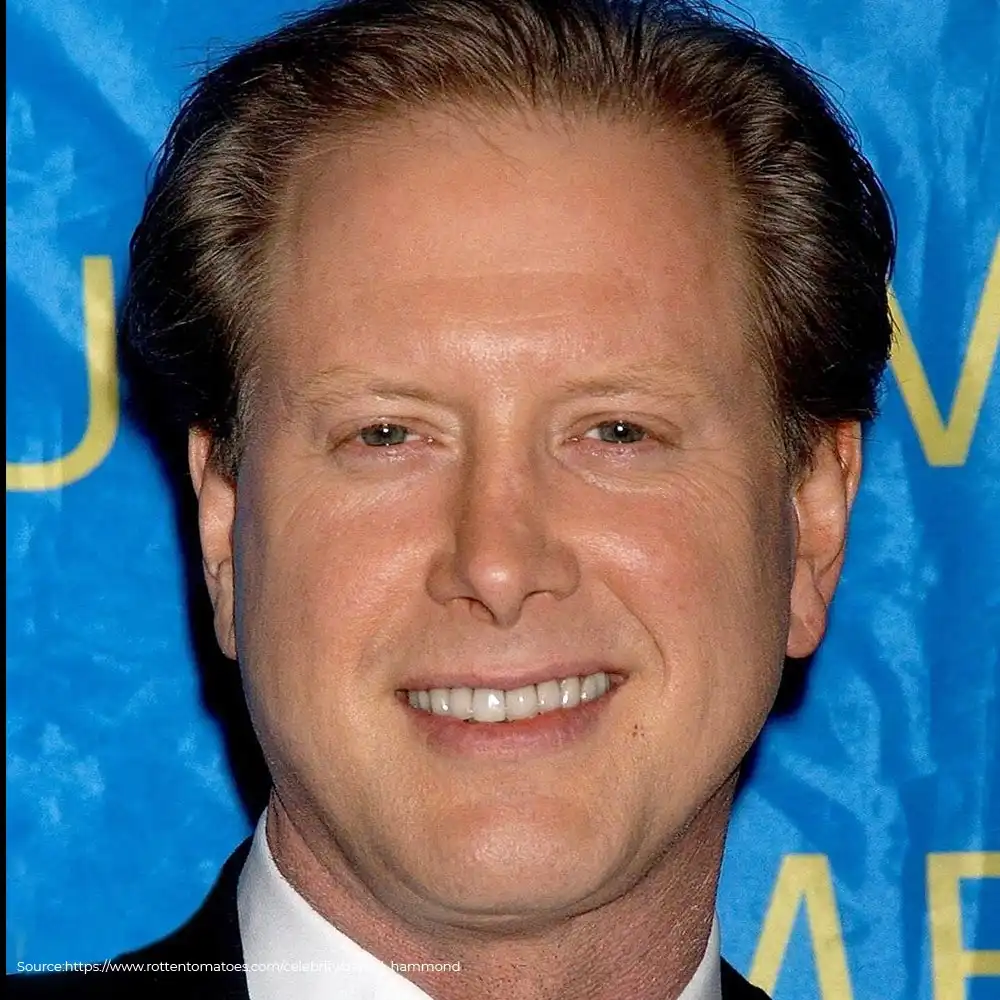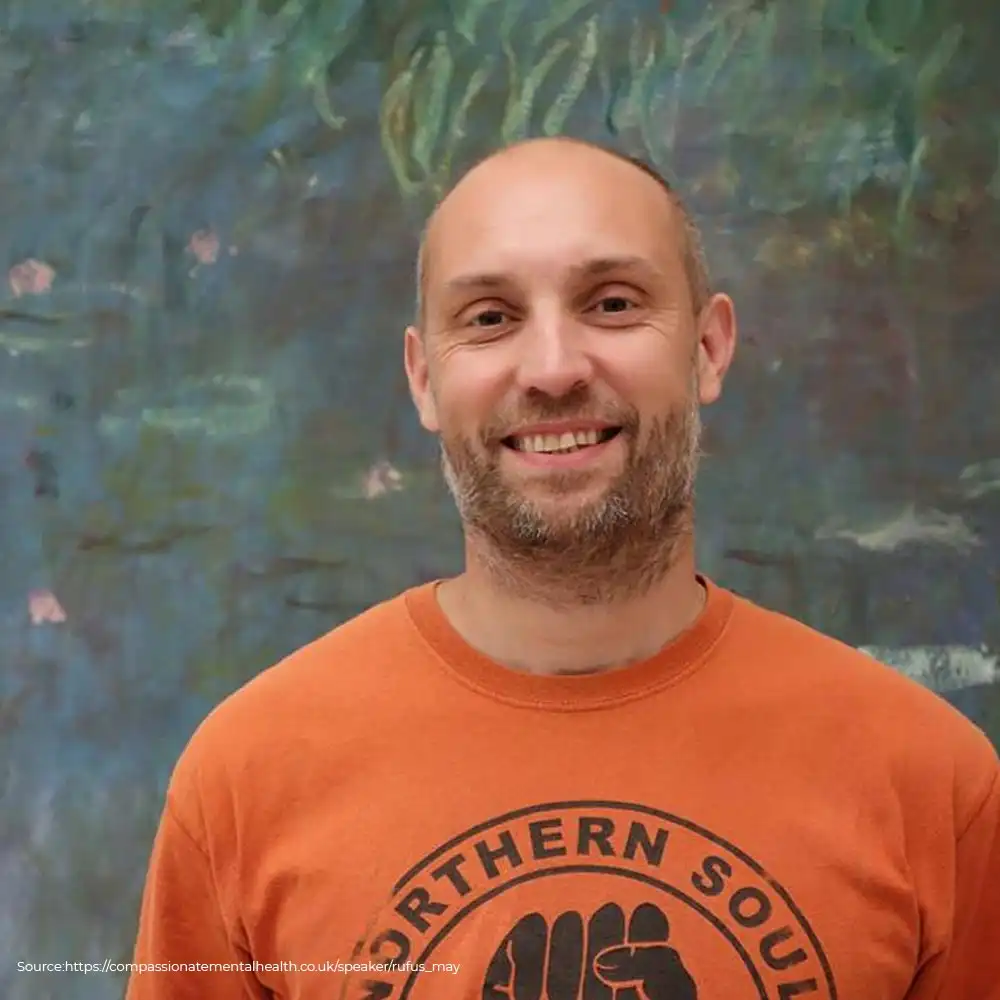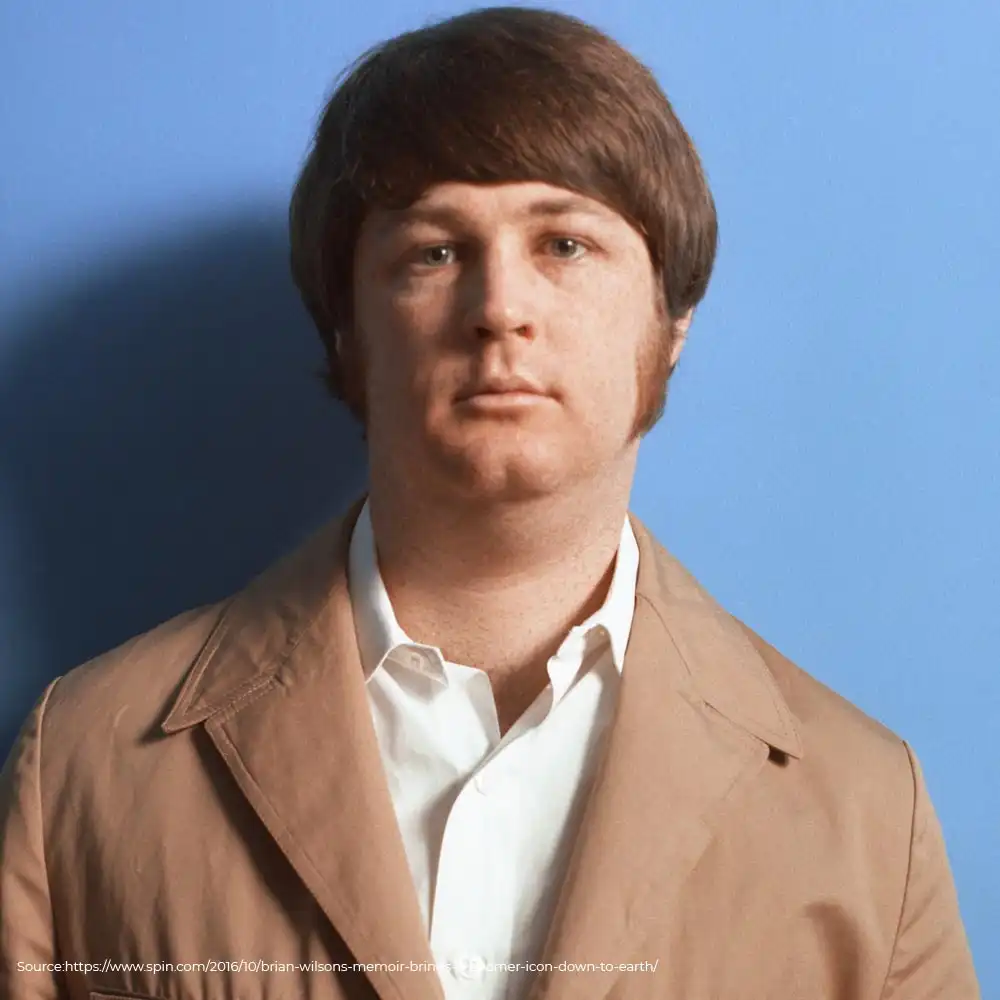Popular Celebs Open Up About Schizophrenia and Sleep Deprivation!

Have you ever wondered what lurks behind the glitz and glamour of the entertainment industry?
The lives of celebrities are often portrayed as flawless, but the reality is far from perfect.
Now, let’s delve into a topic that sheds light on the struggles of some well-known figures – schizophrenia and sleep deprivation.
You may think these issues don’t intersect with fame but think again. Several popular personalities have opened up about their battles with schizophrenia. Defying the stigma and shedding light on a condition often misunderstood. SmartMattressBuy.com is going to explore the stories of 20 Celebrities with schizophrenia.
20 Famous People with Schizophrenia
When we think of famous individuals, we usually associate them with their achievements, talents, and public personas. However, there’s a lesser-known aspect of some celebrities’ lives – their struggles with mental health issues like schizophrenia.
Let’s take a closer look. Some of these prominent figures have bravely shared their stories to raise awareness and reduce the stigma surrounding mental illness.
Here are the Celebrities with Schizophrenia – Coming Out to Help Others:
-
Lionel Aldridge
Lionel Aldridge’s journey from Super Bowl champion to mental health advocate is nothing short of inspirational. Despite his success on the football field, Aldridge faced personal battles that few knew about. Diagnosed with schizophrenia in his 30s, he encountered a tumultuous period marked by divorce and homelessness. However, Aldridge didn’t let his diagnosis define him. Instead, he chose to speak openly about his experiences, shedding light on the realities of living with schizophrenia.
Through his speeches and outreach efforts, Aldridge aimed to destigmatize mental illness and offer hope to others facing similar challenges. His message is clear. Recovery is possible, but it requires more than just medication. It takes resilience, determination, and a supportive community. By sharing his story, Aldridge has become a beacon of hope. Showing that even in the darkest moments, there is light at the end of the tunnel.
-
Syd Barrett
Syd Barrett’s enigmatic life journey is a testament to the highs and lows of genius and the complexities of mental health. As the founder of Pink Floyd, Barrett’s creative brilliance left an indelible mark on the music world. However, his career was marred by struggles with mental illness and substance abuse. Despite his influential role in shaping Pink Floyd’s early sound, Barrett’s tenure with the band was short-lived, ending abruptly amid rumors of schizophrenia and drug addiction.
Following his departure from the music scene, Barrett retreated into seclusion. Thus grappling with the demons of his mind while living a reclusive life. Despite attempts to rejoin society, Barrett ultimately found solace in the quiet confines of his childhood home in Cambridge. Where he battled diabetes and, ultimately, pancreatic cancer.
Barrett’s legacy serves as a poignant reminder of the fragility of creativity and the importance of mental health awareness. His tumultuous journey continues to captivate and inspire, highlighting the need for compassion and understanding towards those facing similar struggles. Though gone, his musical genius and troubled soul remain etched in the annals of rock history.
-
Charles “Buddy” Bolden
Charles “Buddy” Bolden stands as a pivotal figure in the annals of jazz history, his life a blend of musical brilliance and tragic descent into mental illness. Revered as the “King of Jazz” in his heyday, Bolden’s pioneering contributions to the genre laid the foundation for generations to come. Born in 1877, Bolden’s early years are shrouded in myth and legend, with conflicting accounts of his occupation and pursuits. What remains undisputed, however, is his unparalleled talent and innovation in shaping the distinctive sound of New Orleans ragtime music, later known as jazz.
Bolden’s meteoric rise to fame was abruptly halted by a harrowing episode of “acute alcoholic psychosis” at the tender age of 30. Subsequent diagnosis revealed the devastating reality of schizophrenia, condemning him to a life confined within the walls of the Louisiana State Insane Asylum. Despite his tragic fate, Bolden’s musical legacy endures as a testament to the enduring power of creativity amidst adversity.
His untold story serves as a poignant reminder of the fragility of genius and the urgent need for compassion and understanding towards those grappling with mental illness. Though his voice may have been silenced, his influence resonates eternally within the soul of jazz.
-
Eduard Einstein
Eduard Einstein, the son of the renowned physicist Albert Einstein, traversed a tumultuous path marked by brilliance and tragedy. Born into the illustrious Einstein family in 1910, Eduard’s early years were imbued with the promise of intellectual greatness. Raised in the shadow of his father’s towering reputation, he demonstrated exceptional intelligence and academic prowess, harboring aspirations of becoming a psychoanalyst.
However, Eduard’s dreams were eclipsed by the onset of schizophrenia, which manifested when he was just 20 years old. Despite his remarkable intellect, he grappled with the relentless grip of mental illness, enduring periods of institutionalization and turmoil. Tragically, Eduard’s life was cut short by his affliction, passing away in an asylum at the age of 55.
His story serves as a poignant reminder of the indiscriminate nature of mental illness, transcending the boundaries of fame and fortune. Eduard’s legacy endures not only as a testament to the complexities of the human mind but also as a catalyst for raising awareness. Also, understanding schizophrenia within society. Through his family’s lineage, his plight continues to shed light on the profound challenges faced by those grappling with mental health disorders.
-
Zelda Fitzgerald
Zelda Fitzgerald, the vivacious wife of F. Scott Fitzgerald, captivated the world with her magnetic presence and artistic flair. A celebrated figure of the Jazz Age, Zelda epitomized the spirit of the Roaring Twenties as the quintessential American Flapper. Yet, beneath her glamorous facade lay a tumultuous inner world plagued by the shadows of mental illness.
Diagnosed with schizophrenia at the tender age of 30, Zelda’s life became a poignant saga of resilience and despair. Her struggles with paranoia and psychological distress cast a somber hue over her once-gilded existence, leading to periods of institutionalization and emotional turbulence. Despite her affliction, Zelda’s creative spirit remained undimmed, finding expression through her writing and painting endeavors.
Her marriage to F. Scott Fitzgerald, immortalized in literary history, bore witness to both love and strife, with her husband drawing inspiration from her turbulent psyche for his female characters. Zelda’s legacy endures as a poignant reminder of the fragility of the human mind and the enduring power of artistic expression in the face of adversity. Through her story, she continues to inspire generations to confront the complexities of mental health with empathy and compassion.
-
Peter Green

Peter Green, the visionary guitarist and co-founder of Fleetwood Mac, etched his name in the annals of rock history with his soul-stirring melodies and profound musicality. Born in 1946, Green’s journey to fame began when he stepped into the limelight as the lead guitarist for Peter Bardens’ band before joining John Mayall & the Bluesbreakers. His virtuosity on the guitar, characterized by exquisite string bending and emotive vibrato, earned him accolades and recognition as one of the greatest guitarists of all time.
Green’s creative genius manifested in iconic compositions like “Albatross,” “Black Magic Woman,” and “Oh Well,” which resonated across generations and inspired numerous artists. Despite his meteoric rise to fame, Green’s personal life was fraught with inner turmoil, culminating in a diagnosis of schizophrenia at the age of 31.
Amidst the chaos of mental illness, Green found solace in the simplicity of music, rediscovering his passion for the guitar and embarking on a journey of healing and renewal. His candid discussions about his struggles with schizophrenia serve as a beacon of hope, inspiring others to confront their own challenges with resilience and courage. Through his music and resilience, Peter Green’s legacy endures as a testament to the transformative power of creativity and the human spirit.
-
Darrell Hammond

Darrell Hammond, the comedic genius behind some of “Saturday Night Live’s” most memorable sketches, has tickled the funny bones of audiences for decades. Born in 1955, Hammond’s journey to stardom was paved with laughter and laced with unexpected twists.
During his illustrious tenure on “SNL,” Hammond carved out a niche for himself as a master impressionist, effortlessly embodying a staggering array of celebrities and politicians with uncanny accuracy. From John McCain to Donald Trump, his portrayals brought joy and laughter to millions.
Yet behind the laughter, Hammond grappled with profound personal challenges. In a candid revelation, he disclosed his struggle with schizophrenia, shedding light on the often misunderstood intersection of comedy and mental health. His courageous openness about his experiences with abuse and psychiatric issues serves as a beacon of hope for others facing similar battles.
Despite the shadows that haunted his past, Hammond emerged as a resilient survivor, using his platform to advocate for mental health awareness and inspire others to seek help. Through laughter and tears, Darrell Hammond’s story reminds us of the transformative power of resilience and the importance of breaking the silence surrounding mental illness.
-
Tom Harrell

Tom Harrell, the renowned composer and jazz virtuoso, has left an indelible mark on the world of music despite grappling with the challenges of paranoid schizophrenia. Born in 1946, Harrell’s journey is a testament to the resilience of the human spirit in the face of adversity.
His talent and dedication have earned him numerous accolades, including prestigious awards like the Trumpeter of the Year from Down Beat magazine and a Grammy nomination for his exceptional work. Harrell’s compositions and performances have captivated audiences worldwide, showcasing his unparalleled skill and creativity.
Offstage, the invisible struggles of schizophrenia loom large, shaping his daily life in profound ways. Despite the obstacles, Harrell’s passion for music remains unwavering. With humility and grace, he continues to share his gift with the world, composing, recording, and touring tirelessly.
Tom Harrell’s story is a testament to the power of music to transcend barriers and illuminate the human experience, inspiring countless individuals to embrace their own unique journey with courage and perseverance.
-
John Hinckley, Jr.

John Hinckley, Jr.’s name became etched in history as the man who attempted to assassinate U.S. President Ronald Reagan in 1981, a chilling reminder of the potential consequences of untreated mental illness. Born in 1955, Hinckley’s troubled mind led him down a path of obsession and violence, culminating in the fateful day outside the Hilton Hotel in Washington, D.C.
Driven by an unhealthy fixation on actress Jodie Foster, Hinckley’s actions were later attributed to schizophrenia and schizoid personality disorder, shedding light on the complexities of mental health in the legal system. His not guilty by reason of insanity plea sparked nationwide debate and prompted legislative changes in how mental illness is considered in criminal proceedings.
Despite the passage of time and his eventual release from institutional care in 2016, Hinckley’s story serves as a stark reminder of the importance of addressing mental health issues with compassion and urgency, to prevent tragedies and ensure the well-being of individuals and society as a whole.
-
Jack Kerouac
Jack Kerouac, the enigmatic figure behind the iconic novel “On the Road,” left an indelible mark on American literature and culture. Born in 1922, Kerouac’s journey through life was as tumultuous as the roads he traversed in his writing. His groundbreaking approach to prose, known as spontaneous prose, captured the essence of a generation grappling with spirituality, jazz, and the search for meaning.
At the age of 21, while serving in the military, Kerouac received a diagnosis of schizophrenia, then termed “dementia praecox.” Despite this label, he forged ahead, channeling his experiences into literary masterpieces that would define the Beat Generation. Kerouac’s struggles with mental health, compounded by a lifetime of heavy drinking, ultimately led to his untimely demise in 1969.
Yet, his legacy endures, a testament to the power of art to transcend adversity. Through his words, Kerouac continues to inspire generations to embrace life’s journey with courage, curiosity, and an unyielding spirit of exploration.
-
Veronica Lake
Veronica Lake, the epitome of glamour and mystery in 1940s film noir, captivated audiences with her magnetic presence and signature “peek-a-boo” hairstyle. Yet, beneath the surface of her silver screen persona lay a tumultuous battle with mental illness that began in childhood with a diagnosis of schizophrenia.
Despite her struggles, Lake soared to stardom with acclaimed performances in Sullivan’s Travels and alongside Alan Ladd in noir classics. However, her career waned in the late 1940s, overshadowed by the weight of her mental health challenges and alcoholism.
Despite sporadic returns to the screen, including a notable role in Footsteps In the Snow, Lake’s career never regained its former glory. Tragically, she passed away at the age of 50, leaving behind a legacy of cinematic brilliance tarnished by the shadows of mental illness. Yet, her enduring impact on the silver screen serves as a reminder of her talent and resilience in the face of adversity.
-
Mary Todd Lincoln
Mary Todd Lincoln, the esteemed wife of President Abraham Lincoln, was a woman of ambition and intellect. Hailing from a prominent Kentucky family, Mary shared her husband’s drive for success and political acumen. Despite her own aspirations, she dedicated herself to supporting Lincoln’s presidency, standing by him through triumphs and tragedies.
The loss of her son Willie in 1862 plunged Mary into deep despair, leading her to seek solace in unconventional avenues like spiritualism. Her struggles with mental health, including mood swings and public outbursts, have led historians and psychologists to speculate about conditions such as bipolar disorder and schizophrenia.
Despite the challenges she faced, Mary Todd Lincoln left an indelible mark on American history as a steadfast companion to one of its greatest leaders. Her resilience in the face of personal adversity serves as a testament to her strength and enduring legacy as the First Lady of the United States.
-
Rufus May

Rufus May’s journey from psychiatric patient to renowned clinical psychologist is as inspiring as it is enlightening. Diagnosed with schizophrenia at a tender age, May confronted his condition with courage and resilience, utilizing his own experiences to advocate for alternative recovery approaches. His personal understanding of psychosis as a response to emotional loss and social isolation adds a unique perspective to the field.
May’s decision to break away from traditional psychiatric treatments in favor of holistic methods speaks volumes about his determination to reclaim his well-being. Through exercise, creative pursuits, social connections, and voluntary work, he forged a path to recovery that defied conventional wisdom.
Today, May’s work in an assertive outreach team in Bradford, England, exemplifies his commitment to empowering others on their journey to mental wellness. His involvement in consumer recovery groups underscores his dedication to fostering supportive communities and challenging stigmas surrounding mental health. Rufus May’s story is a testament to the power of resilience, advocacy, and the human spirit.
-
John Nash
John Nash’s story is one of extraordinary brilliance and resilience in the face of adversity. As an acclaimed American mathematician, his groundbreaking work in differential geometry and game theory revolutionized multiple fields. Despite his remarkable intellect, Nash battled the shadows of paranoid schizophrenia, a struggle immortalized in the Oscar-nominated film “A Beautiful Mind.”
Nash’s journey from academic acclaim to the depths of mental illness and back again highlights the complexity of the human mind. His ability to find beauty and meaning amidst the chaos of his own thoughts speaks volumes about the resilience of the human spirit.
Through his writings and rare interviews, Nash offered profound insights into the nature of mental illness, challenging stereotypes and offering hope to those who similarly grapple with psychological challenges. His legacy extends far beyond the realm of mathematics, inspiring countless individuals to find strength and purpose in the face of adversity.
-
Ingo Schwichtenberg
Ingo Schwichtenberg’s legacy as a drummer is marked by both brilliance and tragedy. As a founding member of Helloween, his energetic drumming and infectious smile captivated audiences worldwide. His contributions to the power metal genre continue to inspire musicians to this day.
However, Schwichtenberg’s life was plagued by inner demons, including struggles with addiction and schizophrenia. Despite his undeniable talent, his refusal to adhere to medication regimens led to tumultuous episodes that eventually cost him his place in the band he helped create.
Tragically, Schwichtenberg’s battle with schizophrenia reached a devastating conclusion with his untimely death by suicide in 1995. His passing serves as a stark reminder of the importance of mental health awareness and the toll that untreated conditions can take.
While his life may have been cut short, Schwichtenberg’s impact on the world of music endures, serving as a reminder of the fragile balance between creativity and mental well-being.
-
Skip Spence
Skip Spence’s musical journey, marked by creativity and turmoil, embodies the complexities of artistic expression and mental health struggles. As a founding member of Moby Grape, his guitar riffs and songwriting prowess helped shape the psychedelic rock scene of the 1960s.
However, Spence’s life took a tragic turn when he was diagnosed with schizophrenia at the young age of 23. His descent into delusion, exacerbated by drug use, led to a harrowing episode where he believed himself to be the anti-Christ.
Despite the challenges posed by his mental illness, Spence channeled his inner turmoil into his solo album “Oar.” Critics may have dismissed it as “crazy music,” but perhaps therein lay a deeper narrative—an artist grappling with his reality through music.
In songs like “Little Hands,” Spence’s lyrics hint at a longing for a world free from pain, offering a glimpse into his innermost thoughts and struggles. His legacy serves as a poignant reminder of the fragility of the human mind and the power of artistic expression to transcend adversity.
-
Gene Tierney
Gene Tierney’s luminous presence graced the silver screen, captivating audiences with her talent and beauty. Rising swiftly to stardom, she earned acclaim for her unforgettable performances in classic films like “Laura” and “Leave Her to Heaven.”
However, behind the glamour, Tierney faced profound personal challenges. Struggling with what was then believed to be manic depression or schizophrenia, she endured periods of emotional turmoil. Tragically, the birth of her daughter, afflicted with deafness and mental disability due to rubella infection, compounded Tierney’s anguish.
In 1953, Tierney’s mental health deteriorated further, impacting her career. Hospitalized and subjected to shock treatments, she emerged with shattered memories and a staunch opposition to the therapy.
Tierney’s courageous battle against the stigma of mental illness and her advocacy against controversial treatments leave a lasting legacy. Her remarkable journey serves as a poignant reminder of the complexities of fame and the resilience of the human spirit in the face of adversity.
-
Vincent van Gogh
Vincent van Gogh’s tumultuous life and extraordinary art continue to captivate the world. A pioneer of Post-Impressionism. His vibrant works, including “Starry Night” and “Sunflowers,” are celebrated for their emotional depth and expressive style.
Van Gogh’s creative genius was accompanied by inner turmoil, marked by periods of intense despair and instability. Though schizophrenia was not formally recognized during his lifetime, many now believe he grappled with the disorder. His eccentric behavior and volatile moods hint at a mind plagued by inner demons.
Despite his personal struggles, van Gogh’s artistic legacy endures as a testament to the power of creativity and resilience. Through his vivid brushstrokes and poignant imagery, he sought to capture the beauty and complexity of the human experience. Van Gogh’s tragic demise at the age of 37. It serves as a poignant reminder of the fragile intersection between brilliance and suffering in the pursuit of artistic expression.
-
Wesley Willis
Wesley Willis’s life was a testament to the power of creativity in the face of adversity. Despite grappling with paranoid schizophrenia, he forged a unique path as a singer-songwriter and visual artist. Willis’s journey with mental illness began at the age of 26 when he started hearing what he called “demons,” leading to a diagnosis that would shape the rest of his life.
Rather than succumbing to despair, Willis embraced his experiences and channeled them into his art. He humorously named his hallucinations and turned his “hell rides” into joyous expressions of rock and roll. Through his music, Willis found solace and connection, garnering a devoted following drawn to his raw authenticity and quirky lyrics.
Despite facing additional health challenges, including chronic leukemia, Willis continued to create until his untimely death at age 40. His legacy endures as a reminder of the resilience of the human spirit and the transformative power of art in overcoming adversity.
-
Brian Wilson

Brian Wilson’s musical genius and turbulent personal struggles have made him an enduring figure in the annals of rock history. As a co-founder of the Beach Boys, Wilson helped shape the sound of an era with his innovative compositions and arrangements. Despite achieving immense success, Wilson’s life was marked by inner turmoil and mental health challenges.
Diagnosed with schizophrenia in his 30s, Wilson grappled with auditory hallucinations and battled addiction. Leading to periods of isolation and self-destructive behavior. His struggles took a toll on his voice and well-being. But Wilson persevered, eventually reclaiming his place in the spotlight with a series of solo albums in the 1990s.
Beyond his musical achievements, Wilson’s resilience in the face of adversity serves as a powerful testament to the human spirit. Inducted into the Rock and Roll Hall of Fame and honored by the Kennedy Center, Wilson’s legacy transcends his troubled past. Standing as a reminder of the transformative power of creativity and perseverance.
These individuals represent just a fraction of the famous faces who have confronted schizophrenia head-on, challenging stereotypes and fostering understanding.
Sleep Deprivation: A Silent Struggle among Celebrities:
In addition to Schizophrenia, another issue that often plagues celebrities is sleep deprivation. The relentless demands of fame, coupled with hectic schedules and constant scrutiny. It can take a toll on one’s mental and physical well-being. Many celebrities find themselves trapped in a cycle of sleepless nights. Struggling to maintain their public image while battling exhaustion behind the scenes.
From actors to musicians, the pressure to perform at the highest level can lead to chronic sleep deprivation. Exacerbating existing mental health issues and affecting the overall quality of life. Despite their outward success, these individuals grapple with the silent torment of sleepless nights, yearning for respite amidst the chaos of fame.
What are the dangers associated with disrupted sleep in individuals with schizophrenia?
Disturbed sleep is a significant concern for individuals with schizophrenia. As it can exacerbate both the symptoms of the disorder and its associated health risks.
Research indicates a strong connection between schizophrenia and sleep disturbances. Disruptions often manifest as an early symptom of the condition. These disturbances can include difficulty falling or staying asleep, irregular sleep patterns, and circadian rhythm disruptions.
The consequences of inadequate sleep can be profound. Not only does it intensify the symptoms of schizophrenia, such as disorganized thoughts, memory difficulties, and hallucinations. But it can also undermine the effectiveness of medications and treatment plans. This increases the risk of relapse and may necessitate adjustments to the individual’s treatment regimen.
Moreover, chronic sleep disturbances can take a toll on physical health. Contributing to issues such as weight gain, high blood pressure, a weakened immune system, and an elevated risk of diabetes. Thus, addressing sleep disruptions is crucial for managing schizophrenia comprehensively and promoting overall well-being.
Common sleep disruptions experienced by individuals with schizophrenia
People with schizophrenia often experience a variety of sleep disturbances, which can significantly impact their overall well-being. Here are some common sleep disturbances frequently observed in individuals with schizophrenia:
- Insomnia: Difficulty falling asleep or staying asleep is a hallmark of insomnia. For individuals with schizophrenia, insomnia may be attributed to overactive dopamine receptors in the brain. A neurotransmitter implicated in both sleep regulation and schizophrenia pathology.
- Obstructive Sleep Apnea (OSA): OSA occurs when airways become blocked during sleep. Leading to symptoms such as snoring, dry mouth, and poor sleep quality. Studies suggest that about 15% of people with schizophrenia may experience OSA potentially exacerbated by weight gain from antipsychotic medications.
- Restless Leg Syndrome (RLS) and Periodic Limb Movement Disorder (PLMD): Restless Leg Syndrome (RLS) causes an uncontrollable urge to move the legs, disrupting sleep, while PLMD involves cramping or jerking the legs during sleep. Both are associated with high levels of dopamine, which are commonly observed in schizophrenia.
- Circadian Rhythm Disorders: These disorders disrupt the body’s natural sleep-wake cycle, leading to irregular sleep patterns. Circadian rhythm disturbances are particularly prevalent among individuals with schizophrenia and may even serve as an early indicator of the condition.
- Narcolepsy: Narcolepsy causes excessive daytime sleepiness and difficulty staying awake, often interfering with daily activities. While research on the association between schizophrenia and narcolepsy is limited. There is some evidence suggests a potential link between the two conditions.
- Night-Eating Syndrome (NES): NES involves excessive nighttime eating, leading to reduced hunger during the day. Individuals with schizophrenia, especially those with insomnia or obesity, may be at an increased risk of developing NES.
Understanding and addressing these sleep disturbances is crucial for effectively managing schizophrenia. This improves the overall quality of life for affected individuals.
What impact does poor sleep have on schizophrenia?
Poor sleep can have profound effects on individuals with schizophrenia, exacerbating the challenges they already face due to their condition. Here’s how poor sleep affects schizophrenia:
- Emotional Well-being: Individuals with schizophrenia and sleep problems often report feeling down, anxious, and restless. Poor sleep can contribute to mood swings, irritability, and apathy, making it difficult to cope with daily stressors.
- Cognitive Functioning: Sleep disturbances impair concentration, memory, and overall cognitive performance. This can hinder the ability to focus, process information, and make decisions. It can further exacerbate difficulties in social interactions and daily tasks.
- Motivation and Energy Levels: Poor sleep leads to a lack of motivation and low energy levels. Making it challenging to engage in activities or pursue goals. This can contribute to feelings of lethargy and disinterest in previously enjoyable activities.
- Physical Health: Chronic sleep problems can have adverse effects on physical health. This includes weakened immune function, increased risk of obesity, and higher susceptibility to other medical conditions. It causes medical conditions such as diabetes and cardiovascular diseases.
- Symptom Severity: Sleep difficulties can exacerbate symptoms of schizophrenia, leading to increased hallucinations, delusions, and other psychotic experiences. It can also contribute to heightened levels of rumination and intrusive thoughts, worsening overall symptomatology.
- Quality of Life: Ultimately, poor sleep significantly impacts an individual’s quality of life. Limiting their ability to engage in social interactions, perform daily tasks, and experience restorative rest. The desire for restful sleep, both physically and mentally, becomes paramount for individuals with schizophrenia. This helps them cope with the challenges of their condition and lead fulfilling lives.
Take Away!
In a world obsessed with perfection, it’s essential to recognize the humanity behind the celebrity facade. The stories of these famous individuals serve as a reminder that mental illness knows no bounds. It can affect anyone, regardless of status or fame.
By speaking out about their struggles with schizophrenia and sleep deprivation, these celebrities have shattered stereotypes. They offered hope to those silently suffering in the shadows. Let’s continue to embrace empathy and understanding. Fostering a culture of acceptance and support for all those battling mental health challenges.
Let the stories of celebrities grappling with schizophrenia and sleep deprivation serve as a poignant reminder. As we pursue our goals, it’s crucial to prioritize our well-being, beginning with ensuring quality sleep. Let SmartMattressBuy.com serve as your trusted resource for embracing a healthier lifestyle and achieving better sleep.
FAQs on Schizophrenia
Q1. Can sleep deprivation trigger schizophrenia?
- Similarly, individuals who remained awake for a continuous period of 24 hours began to exhibit symptoms resembling those of schizophrenia. The study postulated that the absence of sleep, (even for short durations) induces “brain chaos.” This impedes the brain’s ability to accurately filter information.
Q2. What is the best sleep aid for schizophrenia?
- Studies indicate that melatonin therapy could yield beneficial results concerning sleep patterns, metabolic profile, and tardive dyskinesia (medication-induced movement disorder) among individuals diagnosed with schizophrenia.
Q3. How many hours of sleep deprivation cause hallucinations?
- Perceptual distortions, anxiety, irritability, depersonalization, and temporal disorientation manifested within 24 to 48 hours of sleep deprivation. Subsequently, complex hallucinations and disordered thinking emerged after 48 to 90 hours, with delusions appearing after 72 hours. Beyond this point, the clinical presentation resembled acute psychosis or toxic delirium.
Other Articles!
- Popular Celebs with Dysmorphia & Sleep Woes!
- What Is Somniphobia (Fear Of Sleep)?
- Popular but Tired Lifestyles Of Celebrities With Sleep Problems!
- Confessions Of A Celebrity: 10 Secrets On Insomnia Revealed!
Reference:
- https://www.ncbi.nlm.nih.gov/pmc/articles/PMC6048360/#:~:text=Perceptual%20distortions%2C%20anxiety%2C%20irritability%2C,of%20acute%20psychosis%20or%20toxic
- https://www.webmd.com/schizophrenia/ss/slideshow-schizophrenia-famous-names
- https://www.healthyplace.com/thought-disorders/schizophrenia-movies-and-people/famous-people-and-celebrities-with-schizophrenia
- https://www.healthline.com/health/faces-of-schizophrenia
- https://psychcentral.com/schizophrenia/schizophrenia-and-sleep







